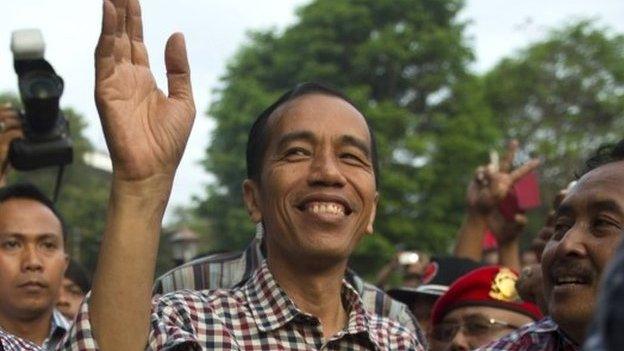Australia government accused of death penalty back flip
- Published
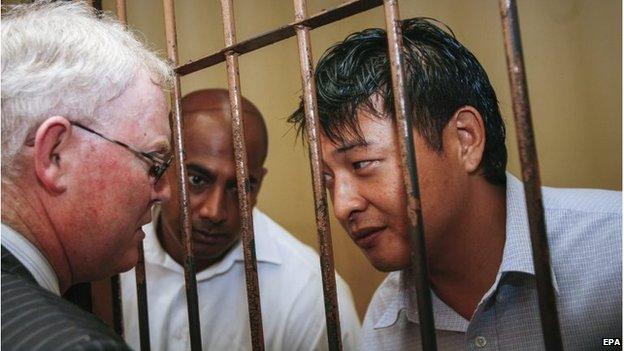
There was no last minute reprieve for drug traffickers Myuran Sukumaran and Andrew Chan
Australia has defended its death penalty stance amid a row over what advice police are given on working with their foreign counterparts.
A 2014 government advisory did not require police to consider if a suspect could face the death penalty before sharing information, it has emerged.
But existing police guidelines say police must take into account the potential for a death sentence.
The row comes after the execution in Indonesia of the Bali Nine pair.
Andrew Chan, Myuran Sukumaran and the rest of the drug-smuggling gang were arrested in 2005 after a tip-off from Australian police.
Chan and Sukumaran were killed by an Indonesian firing squad on Wednesday despite Australian diplomatic pressure.
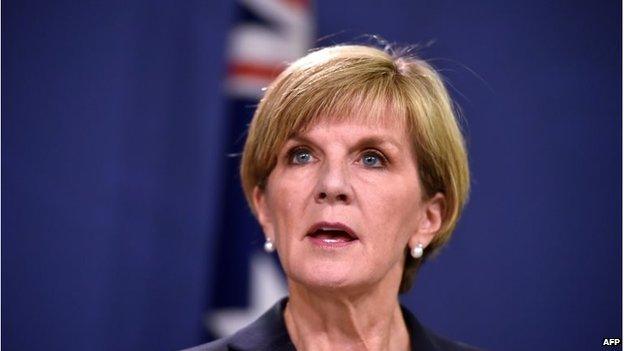
Foreign Minister Julie Bishop lobbied hard for clemency for the Bali Nine duo
The Australian Federal Police (AFP) will soon be called before a parliamentary committee to explain its role in reporting the Bali Nine to Indonesian authorities.
'Matter of urgency'
AFP guidelines say that when the police are giving information to overseas law enforcement agencies about suspected criminals they must take into account the degree of risk to the person in providing the information, including the likelihood the death penalty would be imposed.
The guidelines say also the AFP must consider Australia's interest in promoting and securing co-operation from overseas agencies in combating crime.
A 2010 directive from the Labor government setting out its priorities and expectations for the AFP included that obligation.
But the 2014 directive from the justice minister for the Tony Abbott government, Michael Keenan, did not.
In a letter sent to Mr Keenan on Wednesday, opposition justice spokesman David Feeney said the omission raises concerns that protecting Australians from a potential death sentence overseas "is no longer to be considered a critical priority for the AFP".
He said it should be included as a "matter of urgency".
Mr Feeney said it was "more important than ever" after the executions of Chan and Sukumaran that Australia's leaders "do all we can to protect Australians from the threat of the death penalty, and to campaign for the global abolition of this cruel punishment".
'Cheap politics'
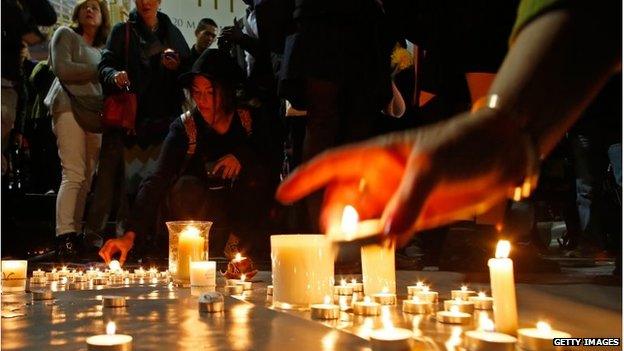
A majority of Australians opposed the death penalty for drug smugglers Chan and Sukumaran
At a press conference on Thursday, Mr Keenan would not explain the omission, saying only that "strict" guidelines were in place governing the way the police dealt with countries who had the death penalty .
"Those guidelines were updated in 2009 and they are the same today and they are not changed," he said.
Foreign Minister Julie Bishop criticised Labor for bringing up the matter so soon after the deaths of Chan and Sukumaran.
"To think that less than 24 hours after these executions the Labor party is looking to take a cheap political shot," she told reporters.
"Shame on them," she said. "We are satisfied that those guidelines are appropriate."

The case of the Bali Nine
The eight men and one woman were arrested in April 2005 at an airport and hotel in Bali, Indonesia after a tip-off from Australian police. They were trying to carry 8.3kg (18lb) of heroin back to Australia.
In 2006 a court ruled that Andrew Chan and Myuran Sukumaran had recruited the others and paid their costs. They were sentenced to death and executed on 29 April.
The other seven are serving sentences of between 20 years and life, after some had death sentences revoked on appeal.
Chan and Sukumaran had repeatedly appealed against their sentences, saying they were reformed characters - Chan taught Bible and cookery classes in prison while Sukumaran became an artist.

Bob Myers, an Australian lawyer involved with the family of one of the other Bali Nine members, on Wednesday accused the AFP of having "blood on its hands".
"They knew of this plot, they knew of eight participants - they didn't know of Sukumaran at the time - and they didn't want to stop these people," he told Australian media.
Australia waged a lengthy and ultimately unsuccessful diplomatic campaign seeking clemency for the two men.
Six people from other countries were also executed on Wednesday at the prison island of Nusakambangan.
The bodies of the two Australians are expected to be flown back to Australia on Thursday night, according to the Australian Broadcasting Corp.
- Published29 April 2015
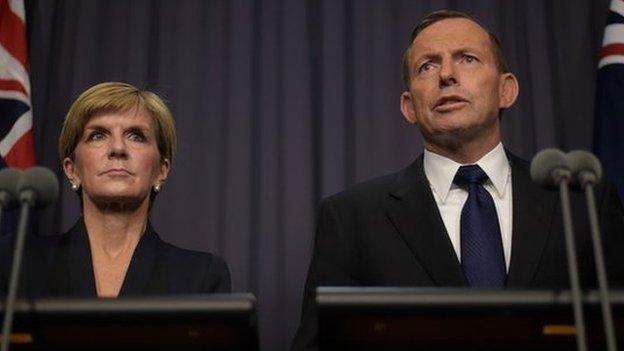
- Published29 April 2015
- Published28 April 2015
